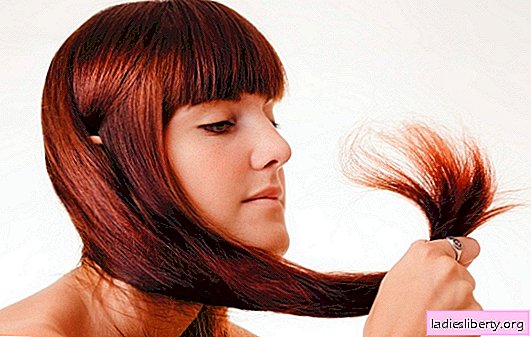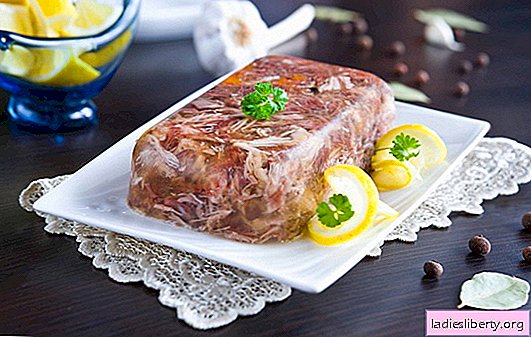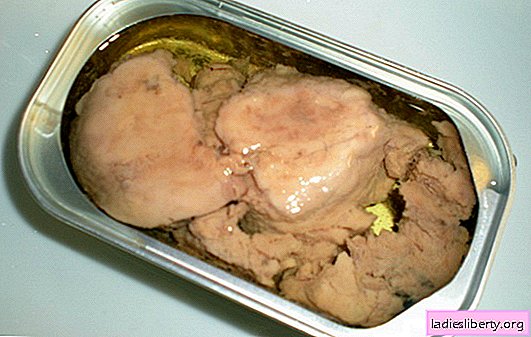
Excessive sweating of the head is called hyperhidrosis. Sweat literally floods not only the scalp, but the whole face.
The condition is extremely unpleasant both for the sufferer himself and for those around him.
As a result - poor health, problems at work and in the family, psychological problems. Why does the face and head sweat and what to do with the pathology? We understand the problem.
Why does the face and head sweat: physiological reasons
Doctors divide hyperhidrosis into two types:
1. primarywhen excessive sweating is an individual feature of the human body and is inherent in it since childhood;
2. secondarydeveloping as one of the symptoms of a disease.
With primary hyperhidrosis, excessive sweating gradually increases, and by the age of 14 or 21 it appears as much as possible.
The reasons why a person sweats are so different that only a doctor can figure them out. In the vast majority of cases, excessive sweating is associated with physiology and is not a manifestation of a disease hazardous to health.
Here are the most common causes of excessive sweating:
• very high temperature and humidity;
• big physical load;
• drinking alcohol;
• spicy dishes and drinks;
• hats and clothing made of synthetics that do not allow air to pass through.
Any of these reasons is not directly related to the person, it can be excluded, at the same time getting rid of sweating.
However, there are other physiological causes of hyperhidrosis associated with the characteristics of the autonomic nervous system of a particular person. As a rule, violations in her work are associated with hormonal changes and are manifested:
1. in adolescence;
2. during pregnancy;
3. with the onset of menopause.
Hormones in the human body play the role of regulators of many physiological processes. Including they affect the thermoregulation of the body. Therefore, any malfunctions are manifested by increased sweating in the head, face, and trunk. In any case, with the physiological manifestations of hyperhidrosis, you should not worry: the symptoms are unpleasant, but nothing bad happens to the person. However, there are other pathological causes. Why does the face and head sweat, only a narrow specialist can determine.
Pathological causes of sweating of the face and head
How to understand that excessive sweating is clearly pathological in nature and it is time to consult a doctor? Analyze your condition. If it does not depend on the weather, nor on clothes, nor on food, is not associated with special hormonally significant periods of life, arose suddenly, which means that there is a reason for contacting a doctor. And the sooner you get a qualified answer to the question of why the face and head sweat so much, the better.
Which doctor should I go to? First of all, to the therapist. Comparing hyperhidrosis with other symptoms, he will determine the possible cause and refer you to a specialist: a neurologist, gynecologist, endocrinologist, etc. Diagnostic measures will be prescribed to confirm or exclude the initial diagnosis and prescribe adequate treatment.
Here are the possible reasons why a person sweats:
• malfunction of the endocrine system;
• violation of metabolic processes;
• thyroid disease (hypothyroidism or hyperthyroidism);
• high blood pressure;
• herpes zoster;
• diabetes;
• obesity;
• stroke;
• disease of the central nervous system;
• pathology of the salivary glands;
• oncological disease;
• acute bacterial or viral infections, including brucellosis, tuberculosis;
Strong head sweating is not at all harmless. And the sooner treatment is started, the faster it will be possible to relieve hyperhidrosis.
What to do if your face and head sweat a lot
To exclude dangerous diseases, you need to consult a doctor as soon as possible.
Diagnostic measures
If the causes of excessive sweating are associated with the disease, the doctor after a visual examination will prescribe a comprehensive examination:
• blood test (general, for sugar, for thyroid hormones);
• Analysis of urine;
• ultrasound of the thyroid gland;
• sternum x-ray;
• MRI, CT - as needed.
A full examination may not be necessary. It all depends on the condition of the person. The tests may turn out to be good, in which case the doctor will not prescribe treatment. He will certainly explain why your face and head sweat very much, will give recommendations on how to relieve unpleasant symptoms.
General recommendations
In primary hyperhidrosis, when there is no danger to health, he will advise physiological methods of normalizing the condition. As a rule, a person himself can determine why his face is sweating. What to do in these cases:
• normalize the regime of the day, stay up after 11:00, sleep at least 8 hours a day;
• abandon junk food and hard diets, switch to a proper balanced diet;
• move more, increase physical activity;
• take care of the scalp, rinsing it with decoctions of medicinal drying herbs;
• wash yourself with cold water;
• wash your hair more often;
• to wipe the face, use cooled green tea, water with a solution of lemon, natural apple cider vinegar.
If the doctor prescribes medications, take them carefully. It can be sedatives, that is, sedatives, hormonal pills, antidepressants.
Drug treatment
There are special pills that relieve sweating very quickly. For example, the blockade of sweat glands glycopyrrolate, oxybutynin, etc. However, you cannot take these drugs on your own, without a doctor’s prescription. They have side effects associated with a direct risk to health and even life. It is important to choose the right dose, and only a doctor can do this.
In some cases, the intake of vitamin complexes with a combination of B vitamins is indicated. They improve metabolic processes in the body, which positively affects perspiration, including. Only a doctor can decide on the feasibility of taking vitamins.
Additionally, foods rich in vitamin B can be included in the diet. These are nuts, wheat seedlings, liver, bran, buckwheat, egg yolk, herbs, fish, cottage cheese, cheese, legumes, meat, etc.
Other treatments for hyperhidrosis
Medicine can answer the question of why a person's face and head are sweating. If hyperhidrosis is a concomitant symptom, then treatment will be aimed specifically at the identified underlying disease. If the problem is caused by individual characteristics and is not associated with a serious illness, there are ways to affect a person’s condition and relieve the severity of hyperhidrosis.
Physiotherapy
The most effective against excessive sweating of the head is iontophoresis. The essence of the procedure is to act with a weak galvanic current on the problem area of the body. As a result of exposure, the functions of sweat glands are disturbed, their secretion is reduced. In addition, there is a blockage of the sweat ducts due to the death of skin cells. The method is quite effective, but may not work due to individual characteristics.
Botulinum toxin injection
Botox or Diasport to combat hyperhidrosis is used if no other methods have worked. The drug is injected subcutaneously into the scalp, blocking nerve impulses for the secretion of sweat glands. It is very important that the procedure is carried out by an experienced doctor.
After the introduction of drugs, pathological perspiration stops or decreases significantly. However, not forever. Botulinum toxin will have to be injected periodically, since over time the effect of the injection weakens. As a rule, you need to repeat the procedure every 6-8 months.
Psychotherapeutic sessions
A psychotherapist will help to cope with the state of anxiety, fear that arose against the background of excessive secretion of sweat glands. Various techniques are used, including hypnosis, auto-training.
In some cases, psychotherapy helps to reduce symptoms, in others it is useless. The doctor may include sedative medications, tranquilizers in the treatment plan. The task is to stabilize the patient’s emotional state and restore the normal functioning of his nervous system.
Sympathectomy
The doctor and the patient decide on surgical methods of treatment in extreme cases, when there is simply no other way to organize a normal human life. A sympaectomy is the surgical intersection of the nerves responsible for regulating sweating in a particular area of the body. The effectiveness of this method is high, since the nerve is either completely cut, or pinched and ceases to fulfill its function. Accordingly, the release of fluid from the pores ceases.
However, with hyperhidrosis of the head and face, such an effect is undesirable. The fact is that facial muscles can be damaged, and this is a completely different problem. On the other hand, with a successful operation, the quality of human life changes completely. Here you have to make a choice between possible complications and actually a complete cure.
Alternative methods of treating hyperhidrosis
Traditional medicine also has answers to the question of why a person sweats and what to do to get rid of this serious problem. Herbs are what healers recommend to reduce the secretion of sweat glands.
The easiest way to relieve primary hyperhidrosis is to rinse your hair with a strong decoction of black or green tea. A tablespoon of dried leaves or 2 tea bags per liter of water - this is the basis for a tea rinse. Tea needs to be boiled for 15 minutes. with a slow boil, then cool and rinse clean hair.
You can prepare rinsing products for the head and face on the basis of sage, calendula, birch leaves, lingonberries, mountain ash. Excellent drying effect gives oak bark. Facial skin can be wiped with infusion several times a day.
Remember that it is better not to self-medicate if excessive sweating appears suddenly and is accompanied by other symptoms. Consult a doctor, make sure that there is no direct threat to life and choose the appropriate treatment regimen with your doctor.











